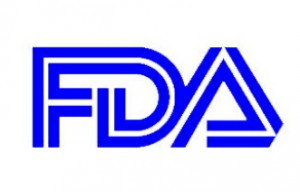Food & Water Watch has released documents, including draft press releases and emails, that they say shows the FDA colluded with the pharmaceutical company Pfizer to minimize the results of a study that links inorganic arsenic, which is a carcinogen, to the U.S. food supply. Food & Water Watch obtained the documents through the Freedom of Information Act.
 Communications between the government and Pfizer began before a 2011 announcement to suspend sales of roxarsone, an arsenic-based drug used in poultry feed. A 2007 study suggested that roxarsone converts into the most dangerous form of arsenic in chickens. Elevated levels of inorganic arsenic were found in the livers of chickens given the drug compared to chickens that never got it. Continued approval of roxarsone violates the Delaney Clause of the Federal Food, Drug, and Cosmetic Act, which requires the FDA to refuse approval of cancer-inducing additives in animal feeds.
Communications between the government and Pfizer began before a 2011 announcement to suspend sales of roxarsone, an arsenic-based drug used in poultry feed. A 2007 study suggested that roxarsone converts into the most dangerous form of arsenic in chickens. Elevated levels of inorganic arsenic were found in the livers of chickens given the drug compared to chickens that never got it. Continued approval of roxarsone violates the Delaney Clause of the Federal Food, Drug, and Cosmetic Act, which requires the FDA to refuse approval of cancer-inducing additives in animal feeds.
Internal documents show that the FDA let Pfizer delay withdrawal of roxarsone in the U.S. and continue to sell it abroad, and that Pfizer “collaborated with FDA on a media relations strategy for announcing the results.” Food & Water Watch says that the documents show Pfizer rewrote the agency’s draft press materials to downplay the danger of roxarsone and all arsenic-based animal feeds and to minimize the significance of the study that showed the problem in the first place.
Wenonah Hauter, executive director of Food & Water Watch said in a statement, “these documents reveal a highly inappropriate relationship between FDA and Pfizer, showing that the agency has not fulfilled its responsibilities under law to prevent avoidable human exposure to arsenic. Instead of acting decisively to protect public health, FDA let a drug company determine what and when the public learned about critical new information about the safety of the food supply. These documents paint a troubling picture for the U.S. food supply and expose the true extent of Pfizer’s lobbying and public relations efforts.”
Dr. Keeve Nachman, Assistant Professor and Director of Food Production and Public Health Program at the Johns Hopkins Center for a Livable Future said about this issue, “it’s critical the FDA ensure its recommendations are issued in a timely manner, and are driven solely by science and a commitment to protecting the public’s health.” Dr. Nachman is author of a 2013 study into arsenical drugs and concentrations in chicken meat.





Does this surprise anyone????? We are living under a government that doesn’t want us to have the right to know what is in our own food!! They are now discussing the elimination of food expiration dates because they feel that we are wasting food that may (or may NOT)be safe to consume after that date!!! ( “a manufactured on”) date is being considered in lieu of” use by”) or no date at all,as if widespread food poisoning isn’t already an issue! We need to take the lead and join Wenonah Hauter.These food control issues smack of a forced dictatorship and the FDA and other government agencies will continue to do this as long as we will allow them to. It is time for us to join together and take back some of the decisions concerning our children and future generations .We have become far too complacent.
Glad I don’t eat chicken. I don’t even feed it to my dog. Chicken and rice soup is probably double the risk of arsenic. Who does the FnDA work for, anyway. It sure isn’t the American people.